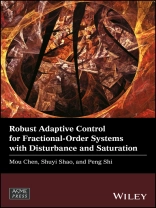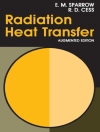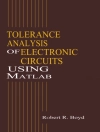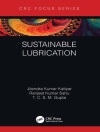A treatise on investigating tracking control and synchronization control of fractional-order nonlinear systems with system uncertainties, external disturbance, and input saturation
Robust Adaptive Control for Fractional-Order Systems, with Disturbance and Saturation provides the reader with a good understanding on how to achieve tracking control and synchronization control of fractional-order nonlinear systems with system uncertainties, external disturbance, and input saturation. Although some texts have touched upon control of fractional-order systems, the issues of input saturation and disturbances have rarely been considered together.
This book offers chapter coverage of fractional calculus and fractional-order systems; fractional-order PID controller and fractional-order disturbance observer; design of fractional-order controllers for nonlinear chaotic systems and some applications; sliding mode control for fractional-order nonlinear systems based on disturbance observer; disturbance observer based neural control for an uncertain fractional-order rotational mechanical system; adaptive neural tracking control for uncertain fractional-order chaotic systems subject to input saturation and disturbance; stabilization control of continuous-time fractional positive systems based on disturbance observer; sliding mode synchronization control for fractional-order chaotic systems with disturbance; and more.
* Based on the approximation ability of the neural network (NN), the adaptive neural control schemes are reported for uncertain fractional-order nonlinear systems
* Covers the disturbance estimation techniques that have been developed to alleviate the restriction faced by traditional feedforward control and reject the effect of external disturbances for uncertain fractional-order nonlinear systems
* By combining the NN with the disturbance observer, the disturbance observer based adaptive neural control schemes have been studied for uncertain fractional-order nonlinear systems with unknown disturbances
* Considers, together, the issue of input saturation and the disturbance for the control of fractional-order nonlinear systems in the present of system uncertainty, external disturbance, and input saturation
Robust Adaptive Control for Fractional-Order Systems, with Disturbance and Saturation can be used as a reference for the academic research on fractional-order nonlinear systems or used in Ph.D. study of control theory and engineering.
Tabla de materias
Preface
Acronyms
1 Introduction
2 Fractional calculus and fractional-order systems
2.1 Fractional calculus
2.2 Some typical fractional-order systems
2.3 Conclusion
3 Fractional-order PID controller and fractional-order disturbance observer
3.1 Problem statement
3.2 Fractional-order PID controller
3.3 Frequency domain fractional-order disturbance observer
3.4 Conclusion
4 Design of fractional-order controllers for nonlinear chaotic systems and some applications
4.1 Fractional-order control for a novel chaotic system without equilibrium
4.2 The application of the chaotic system without equilibrium in image encryption
4.3 Synchronization control for fractional-order nonlinear chaotic systems
4.4 Conclusion
5 Sliding mode control for fractional-order nonlinear systems based on disturbance observer
5.1 Problem statement
5.2 Adaptive control design based on fractional-order sliding mode disturbance observer
5.3 Simulation examples
5.4 Conclusion
6 Disturbance observer based neural control for an uncertain fractional-order rotational mechanical system
6.1 Problem statement
6.2 Adaptive neural control design
6.3 Simulation example
6.4 Conclusion
7 Adaptive neural tracking control for uncertain fractional-order chaotic systems subject to input saturation and disturbance
7.1 Problem statement
7.2 Adaptive neural control design based on fractional-order disturbance observer
7.3 Simulation examples
7.4 Conclusion
8 Stabilization control of continuous-time fractional positive systems based on disturbance observer
8.1 Problem statement
8.2 Main results
8.3 Conclusion
9 Sliding mode synchronization control for fractional-order chaotic systems with disturbance
9.1 Problem statement
9.2 Design of fractional-order disturbance observer
9.3 Disturbance observer-based synchronization control of fractional-order chaotic systems
9.4 Simulation examples
9.5 Conclusion
10 Anti-synchronization control for fractional-order nonlinear systems using disturbance observer and neural networks
10.1 Problem statement
10.2 Design of disturbance observer
10.3 Anti-synchronization control of fractional-order nonlinear systems
10.4 Simulation examples
10.5 Conclusion
11 Synchronization control for fractional-order systems subjected to input saturation
11.1 Problem statement
11.2 Synchronization control design of fractional-order systems with input saturation
11.3 Simulation examples
11.4 Conclusion
12 Synchronization control for fractional-order chaotic systems with input saturation and disturbance
12.1 Problem statement
12.2 Design of fractional-order disturbance observer
12.3 Design of synchronization Control
12.4 Simulation examples
12.5 Conclusion
Appendix A Fractional derivatives of some functions
A.1 Fractional derivative of constant
A.2 Fractional derivative of the power function
A.3 Fractional derivative of the exponential function
A.4 Fractional derivatives of sine and cosine functions
Appendix B Table of Caputo derivatives
Appendix C Laplace transforms involving fractional operations
C.1 Laplace transforms
C.2 Special functions for Laplace transform
C.3 Laplace transform tables
Sobre el autor
Mou Chen, Ph D is a Professor at the College of Automation Engineering at Nanjing University of Aeronautics
and Astronautics, China. He also serves as an associate editor for IEEE access and neurocomputing.
Shuyi Shao is working toward a Ph.D. degree with a major in control theory and control engineering from the College of Automation Engineering, Nanjing University of Aeronautics and Astronautics, China.
Peng Shi, Ph D is a Professor and Chair in systems and control, at the University of Adelaide, and Victoria University, Australia. He is also an IEEE Distinguished Lecturer, and is a Member of the College of Expert,
Australian Research Council.












